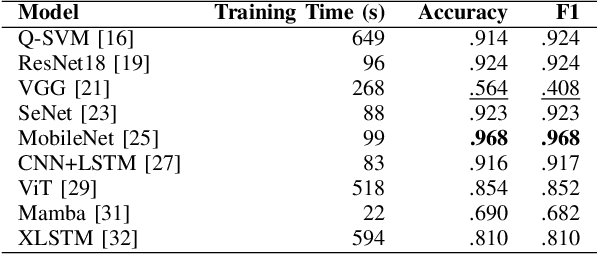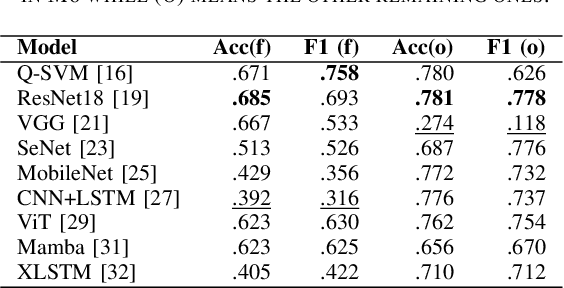Detecting Machine-Generated Music with Explainability -- A Challenge and Early Benchmarks
Paper and Code
Dec 18, 2024



Machine-generated music (MGM) has become a groundbreaking innovation with wide-ranging applications, such as music therapy, personalised editing, and creative inspiration within the music industry. However, the unregulated proliferation of MGM presents considerable challenges to the entertainment, education, and arts sectors by potentially undermining the value of high-quality human compositions. Consequently, MGM detection (MGMD) is crucial for preserving the integrity of these fields. Despite its significance, MGMD domain lacks comprehensive benchmark results necessary to drive meaningful progress. To address this gap, we conduct experiments on existing large-scale datasets using a range of foundational models for audio processing, establishing benchmark results tailored to the MGMD task. Our selection includes traditional machine learning models, deep neural networks, Transformer-based architectures, and State Space Models (SSM). Recognising the inherently multimodal nature of music, which integrates both melody and lyrics, we also explore fundamental multimodal models in our experiments. Beyond providing basic binary classification outcomes, we delve deeper into model behaviour using multiple explainable Aritificial Intelligence (XAI) tools, offering insights into their decision-making processes. Our analysis reveals that ResNet18 performs the best according to in-domain and out-of-domain tests. By providing a comprehensive comparison of benchmark results and their interpretability, we propose several directions to inspire future research to develop more robust and effective detection methods for MGM.
 Add to Chrome
Add to Chrome Add to Firefox
Add to Firefox Add to Edge
Add to Edge